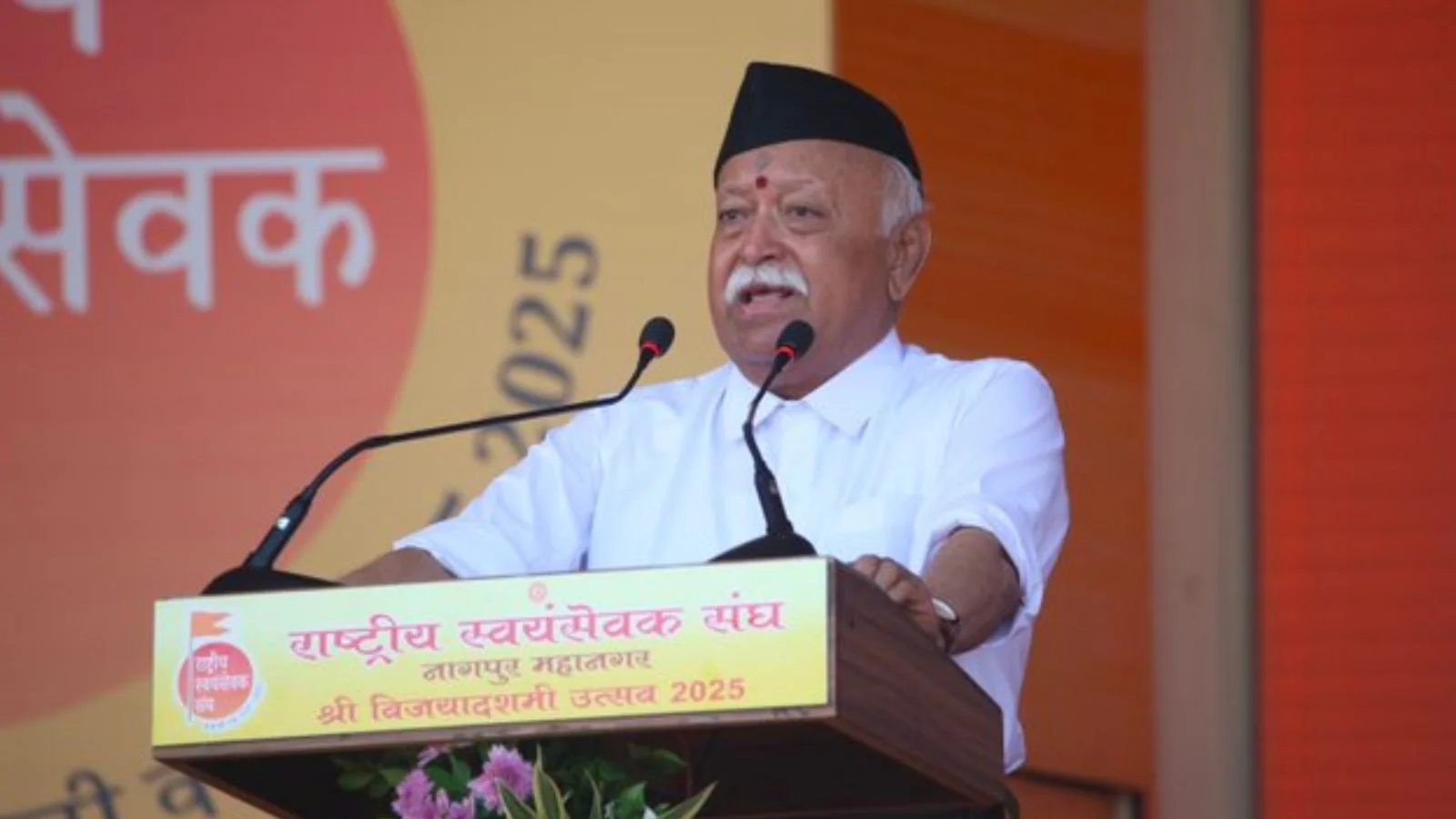By Arun Anand,News18
Copyright news18

The world’s largest voluntary organisation, Rashtriya Swayamsevak Sangh (RSS), has turned 100 on Vijayadashami. On its centenary, RSS Sarsanghchalak Mohan Bhagwat spelled out both its learnings as well as its vision while addressing the swayamsevaks and a host of dignitaries at Nagpur
RSS is the ideological mentor of the Bharatiya Janata Party (BJP) that is currently the ruling party in world’s largest democracy for the third consecutive term. Prime Minister Narendra Modi himself was a Pracharak (full-time worker) of the RSS. He has always taken pride for being an RSS Swayamsevak.
The RSS is a unique experiment whose core principle is “selfless service” to the society. Even the fiercest critics of the RSS are also compelled to accept that the spirit of RSS volunteers when it comes to serving the society is unmatched. Of late there have been some foreign delegations which visited and met the RSS functionaries and showed a keen interest in replicating the “RSS Model” in their respective countries.
Every year the Sarsanghchalak’s Vijaydashami address is seen as a guiding framework for the RSS volunteers as well as more than three dozen organisations inspired by the RSS. This year Bhagwat’s speech was even more eagerly awaited not only in India but outside India also as RSS has reached a milestone completing its centenary.
Bhagwat shared the 100 years of learnings of the RSS and indicated about its future vision also. Here are some key takeaways about Sangh’s learnings and its vision.
First, while Bharat’s resurgence is gaining momentum, a major constraint is the existing models of development that have been imported from other countries and imposed on India. In this context, India needs to develop its own indigenous model. However, this has to be done gradually and a sudden shift is not feasible.
Two, governments are a subfunction of society. Hence the latter shouldn’t leave everything to the government. Systemic improvements are only possible when society takes it up as their own responsibility. The tendency to look towards the government for resolving every issue would not bring a social change. “At every level, there should be persons who can become role models, who are devoted to society, who embody transparency and selflessness, and who consider the entire society as their own and conduct themselves with good behaviour towards it,” said Bhagwat.
Three, there should be a system in place which can create men and women of strong character. The RSS has done it with its daily ‘Shakha’ system. Social transformation through Character building (Vyakti Nirman) and systemic change through social transformation is the correct path for bringing about change in the world.
Fourth, RSS prefers to work on the ground not only through its volunteers but also with all like-minded individuals and organisations. It keeps the focus on its work rather than on speeches and texts.
Fifth, the RSS believes in ‘Unity of Diversity’ not ‘Unity in Diversity’. There are anti-India elements who want to manipulate the diversity in our society to create social unrest. We need to be vigilant about that as a society. Without ‘social unity’, India would not be able to progress at the desired pace. And to have that social unity Indians must associate with a larger ‘Bharatiya’ identity.
Sixth, Bharat’s fundamental unity is not a new concept. It has always existed since ancient times and it is completely inclusive. “It teaches us to respect and embrace all forms of diversity as it is rooted in Bharat’s spiritual truth and qualities such as compassion, purity and discipline—that is, in Dharma. As this nation’s children, Hindu society has adopted this in their way of life as a tradition; which is why it is also called Hindu Sanskriti. It has originated through the penance of Rishis of Bharat. The prosperous and secure environment of ancient Bharat allowed them to do so. This Samskriti has flourished, remained unbroken and reached us today because of the perseverance, sacrifices and dedication of our ancestors. Rashtriyata (or nationalist spirit) is conducting ourselves according to our Bharatiya Sanskriti, cherishing the memory of our ancestors by having a sense of pride and following their conduct, and by devoting ourselves to our divine motherland which has enabled everything. This Hindu Rashtriyata always keeps us together while accepting and respecting all diversities. We don’t have a conception of ‘nation state’. States are formed and decline, while Rashtra remains eternal. We should never forget this foundation of our unity.”
Seventh, the Hindu society is upholder and guardian of the noble idea of ‘Vasudhaiva Kutumbakam’. This is why it is the duty of the Hindu society to make Bharat prosperous and a country that contributes immensely to the entire world. The Sangh has been working to organise the entire Hindu society which on the basis of its organised strength, safeguarding its Dharma, which can offer a new path to the world, will make Bharat prosperous. An organised society can fulfill all its duties on its own. No separate effort will be needed from outside.
Eighth, going ahead, the RSS over the next few decades is going to focus on five transformational initiatives—“Pancha Parivartan”—social harmony, preservation of family values, environmental protection, selfhood and self-reliance, and adherence to legal, civic, and constitutional duties.
The RSS considers it to be the duty of Hindu society to transform itself and pave the way for the rest of the world. As Bhagwat aptly put it in his Vijayadashami speech, “From time to time in world history, Bharat has played a significant role—it has restored the lost balance of the world, providing a global Dharma that instills a sense of restraint and discipline in global life. Our ancient ancestors organised the diverse society living in Bharat as a Rashtra to fulfill this responsibility.” And now RSS intends to carry this legacy forward as it has done during the last 100 years.
The writer is an author and columnist. His X handle is @ArunAnandLive. Views expressed are personal and do not necessarily reflect News18’s editorial stance.



